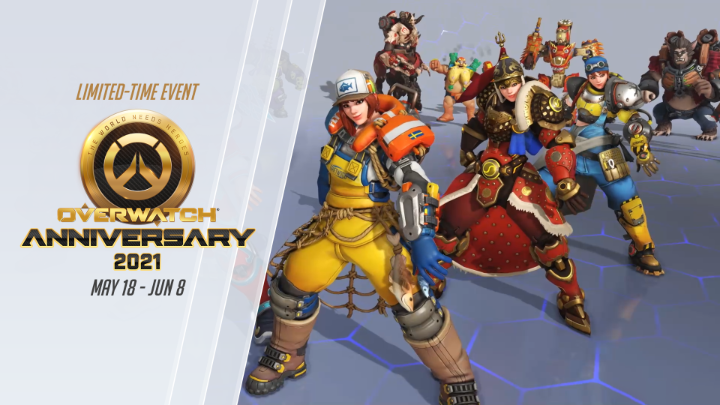

When the event is completed, the themed loot boxes and cosmetic items are no longer are available until the event is run again. Initially, these items could only be obtained through event-themed loot boxes that are guaranteed to contain at least one event-themed item, which could either be earned through leveling up, completing the event game modes, or through microtransactions however, in response to player feedback and avoid an apparent paywall access to these items, Blizzard allowed players to purchase these items with in-game currency at a higher cost than a non-event item of the same rarity, starting from the second seasonal event onward. Blizzard develops a large amount of content for these events, not all of which ends up available to players. In addition to new game modes, these seasonal events include unique cosmetic items that can be obtained primarily during the event. Players are typically rewarded with loot boxes for playing matches in these seasonal game modes, and the game offers unique achievements and associated cosmetic rewards for completing certain goals within them.

Įvents have generally included at least one new game mode, which typically is only available to play while that event is active one exception is the "Capture the Flag" mode introduced during the Lunar New Year event in early 2017, which has been brought back to the game as a permanent feature in the game's casual Arcade matchmaking mode. Other competitor games, such as Destiny, League of Legends and Team Fortress 2, also implement in-game seasonal events. The company has a history of creating in-game seasonal events, such as the Valentine's Day and New Year's events in World of Warcraft. Overwatch 's director Jeff Kaplan said the goal of these seasonal events was to make the game "feel alive", correlating with real-world events. These coins can be used to purchase any of the available cosmetic items (except for player icons), the cost reflecting the rarity of obtaining the item through a loot box.īeginning in August 2016, Blizzard began introducing seasonal events, starting with the Summer Games event which corresponded with the 2016 Summer Olympics. Working alongside this, players can earn in-game coins through some loot box rewards or as a consolation prize for receiving a duplicate loot box reward.

This allowed them to create an incentivized level progression system that would reward players with a loot box for every level they earned from experience gained in playing matches. Instead, they opted to include microtransactions through which players can buy loot boxes, which contain four randomized cosmetic items, including characters skins, victory poses, emotes, spray tags, highlight introductions, and player icons. Over the course of developing Overwatch, Blizzard opted against using a downloadable content model to extend the game and bring post-sale revenues, as they had developed the game around the mechanic of allowing players to switch out to new heroes during the course of a match as to meet current strategic conditions by requiring players to purchase new heroes, such a model would have hampered this approach. Players keep their earned character cosmetic options after the event ends, but the rest of the themed elements return to normal. These events last for two to three weeks, updating levels to incorporate elements of that theme, and provide new game modes along with the opportunity to buy items with credits or acquire them through the game's loot box system. To support ongoing interest in the game, Blizzard has run several seasonal events, typically coinciding with worldwide events and holidays. The game has been both a critical and financial success for Blizzard, exceeding over 30 million players and obtaining over US$1 billion in revenue within its first year. Overwatch supports both casual and ranked matchmaking, as well as a rotating set of arcade modes, and the game has since become a popular esport, featuring the Overwatch League that started in 2018. Each hero has a unique set of weapons, abilities, and skills, which players use to coordinate with their team to overpower the other. Players select from one of over 30 heroes, broadly classified into the three roles of Tank, Damage, and Support, and work with their team to attack or defend map objectives. Overwatch and Overwatch 2 are online team-based first-person shooters developed by Blizzard Entertainment, and released worldwide in May 2016 and October 2022, respectively. Seasonal events run by Blizzard for the 2016 video game Overwatch


 0 kommentar(er)
0 kommentar(er)
